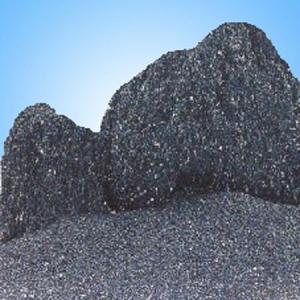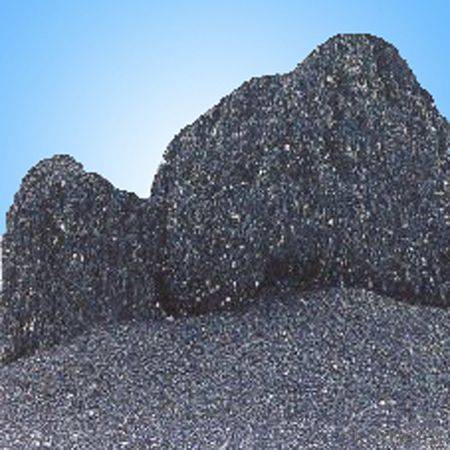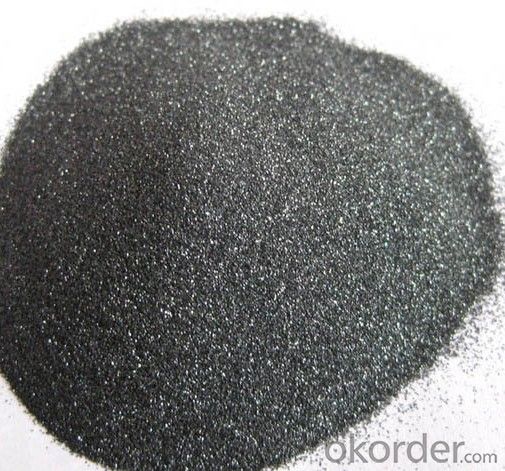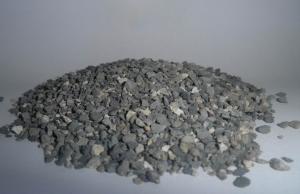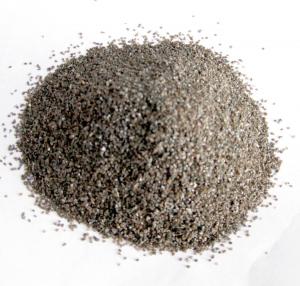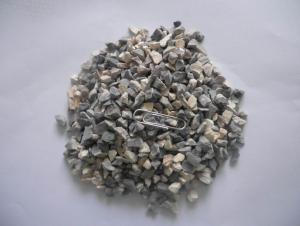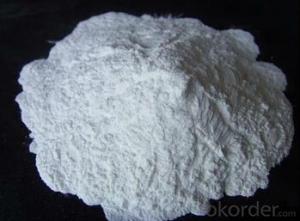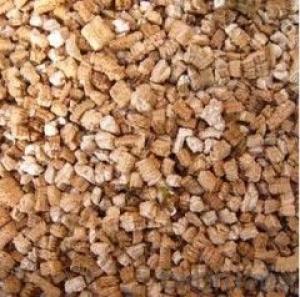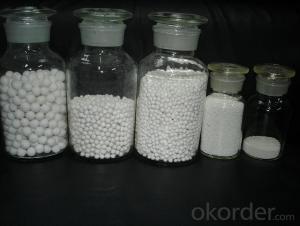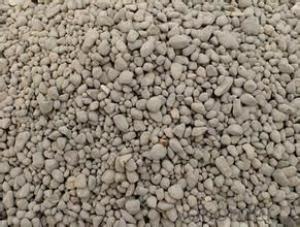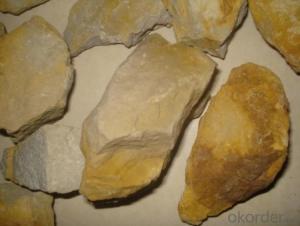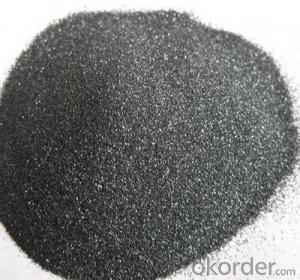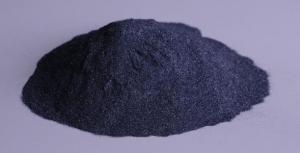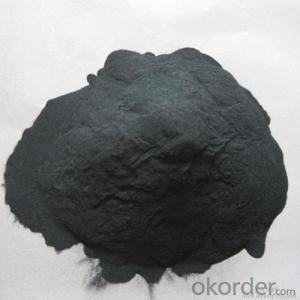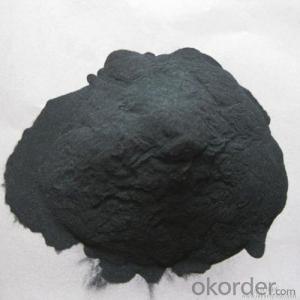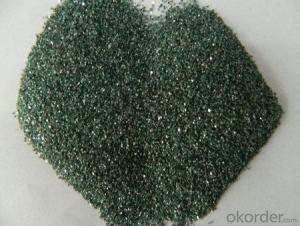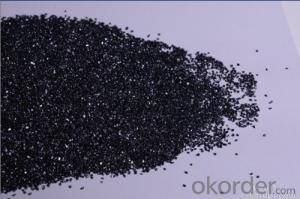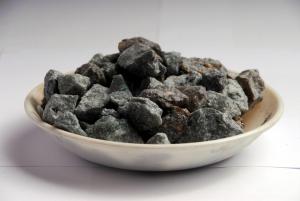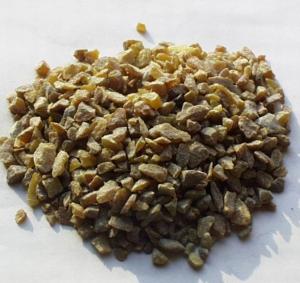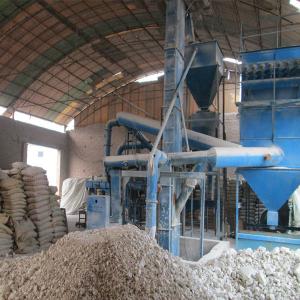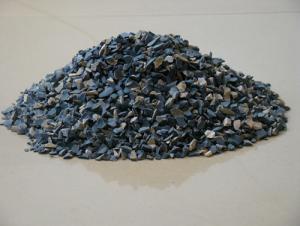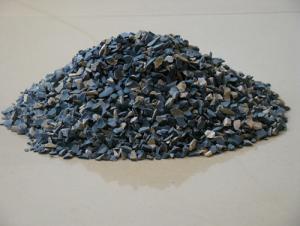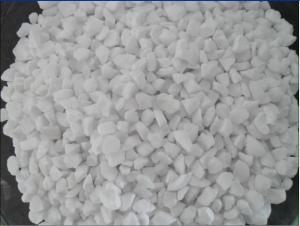Raw Materials for Refractory:Silicon Carbide as Steelmaking Deoxidizer Replacing Ferro Silicon
- Loading Port:
- China main port
- Payment Terms:
- TT OR LC
- Min Order Qty:
- 25 m.t.
- Supply Capability:
- 2000 m.t./month
OKorder Service Pledge
OKorder Financial Service
You Might Also Like
Quick Details
| Place of Origin: | Henan, China (Mainland) | Brand Name: | CNBM | Model Number: | Si-C |
| Application: | refractory or abrasives | Shape: | Lump | Material: | SiC |
| Dimensions: | Si:56%±1, C:17±1 | Chemical Composition: | Silicon ,Carbide |
Packaging & Delivery
| Packaging Details: | 1mt/big bag |
| Delivery Detail: | with 20 work days after deposit |
Product Description
Steelmaking Deoxidizer Silicon Carbide Replacing for Ferro Silicon
As the new alloy for converter, Si-C alloy can replace Ferro Silicon to be used as deoxidizer.
Characters: lower steelmaking cost, increase economic benefit, improve product quality and stable performance.
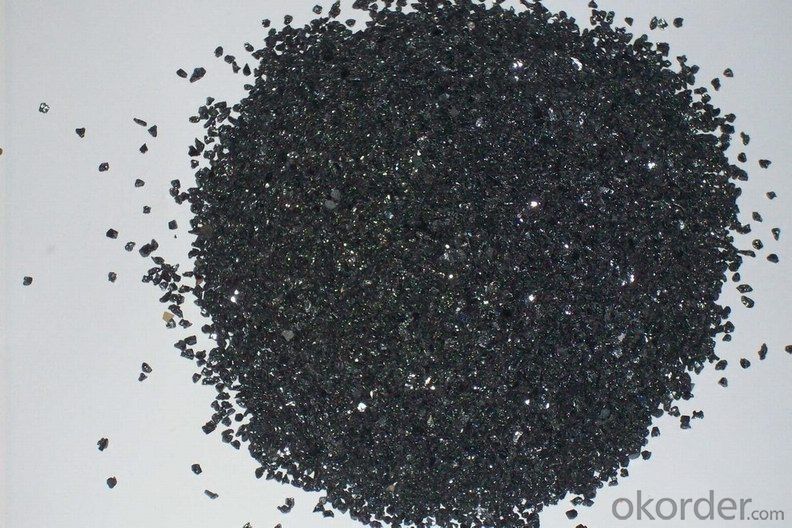
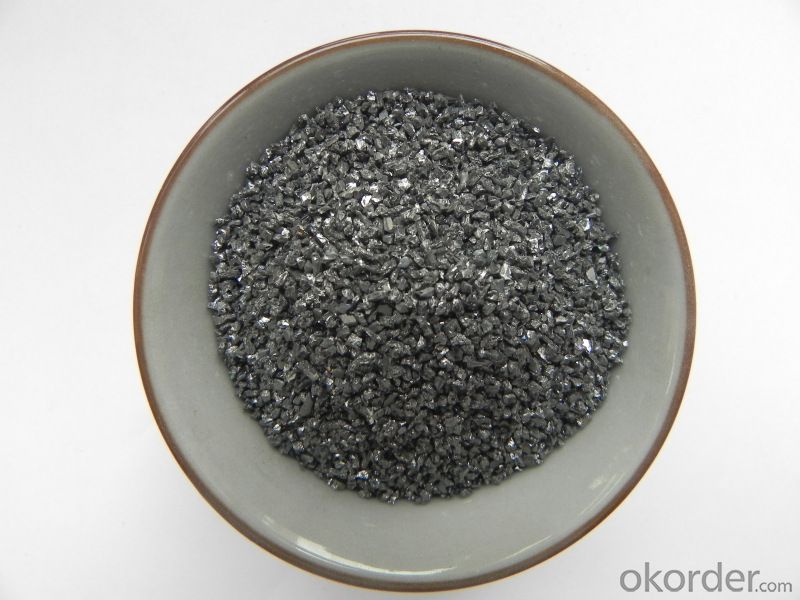
Si-C:
1. Replace Ferro Silicon
2. Reduce the alloy quantity
3. Improve the quality of liquid steel (reduce carburant )
4. Lower production cost
Optimization Solutions:
Steel | FeSi Solution | Si-C Solution |
HRB335 | MnFe+FeSi+SIAlFe+SiC+Carburant | MnSi + Si-C |
Q195 | MnFe+FeSi+SiAlBaCa+Wire Feeding | MnSi+Si-C+SiAlBaCa+Wire Feeding |
Q235 | MnFe+FeSi+ SiAlBaCa+Carburant | MnSi+Si-C+SiAlBaCa |
How to Use?
HRB335: During tapping, add SiMn Alloy when the liquid steel tapped about 1/3, at the same time, put Si-C gradually to the steel ladle.
Q195: During tapping, add SiMn Alloy when the liquid steel tapped about 1/3, then SiAlBaCa, at the same time, put Si-C gradually to the steel ladle, and feed wire at argon blown station.
Q235: During tapping, add SiMn Alloy when the liquid steel tapped about 1/3, then SiAlBaCa, at the same time, put Si-C gradually to the steel ladle.
Chemical Compositions:
Si (%) | C (%) | Ca | |
Si-C | 56±1 | 17±1 | / |
Advantages:
1. Si-C can replace Ferro Silicon and Carburant to do the deoxidation alloying.
2. Using Si-C instead of Ferro Silicon will help to improve the quality of steel.
3. It will helps to lower the cost, gain profit and strength the competitive advantage.
Stability of the Alloy Element
Steel |
Item | Category | |||
Unit | Test Steel | Un-test Steel | Comparison | ||
HRB335 | No. of Heat | Heat | 17 | 30 | |
Internal Control Qualification Rate of C, Si, Mn | % | 100 | 86.7 | +13.3 | |
Mean Squared Error of Mn | % | 0.042 | 0.073 | -0.034 | |
Mean Squared Error of Si | % | 0.048 | 0.071 | -0.023 | |
Mean Squared Error of C | % | 0.012 | 0.014 | -0.002 | |
HRB400 | No. of Heat | Heat | 20 | 58 | |
Internal Control Qualification Rate of C, Si, Mn | % | 88.2 | 77.6 | +10.6 | |
Mean Squared Error of Mn | % | 0.074 | 0.077 | -0.003 | |
Mean Squared Error of Si | % | 0.043 | 0.080 | -0.037 | |
Mean Squared Error of C | % | 0.015 | 0.018 | -0.003 | |
Q235 | No. of Heat | Heat | 18 | 30 | |
Internal Control Qualification Rate of C, Si, Mn | % | 72.2 | 53.3 | +18.9 | |
Mean Squared Error of Mn | % | 0.044 | 0.039 | +0.005 | |
Mean Squared Error of Si | % | 0.041 | 0.042 | -0.001 | |
Mean Squared Error of C | % | 0.015 | 0.016 | -0.001 | |
From the above form, we can get the result that using Si-C alloy can help to improve the qualification rate.
Mechanical Property Comparison:
From the above forms, we can get the conclusion that, the mechanical property of the test steel, which has used SI-C, can be much more stable.
After using SI-C alloy, the average tapping temperature has been improved 9℃, and the average temperature drop has also increased 6℃.
We can see from the data that, using Si-C alloy can helps to save cost about 4.787RMB.
- Q: What are the materials of insulation firebricks?
- The furnaces of firebricks are generally divided into two types, namely, unshaped refractory materials and shaped refractory materials. Unshaped refractory materials, also called castables, is a mix of powdery particles of many aggregates and one or multiple adhesives. They must be stirred well with one or multiple liquids when in use, which has a strong liquidity. Unshaped refractory materials generally refers to firebricks. They have standard rules about their shapes and can also be processed temporarily as needed.
- Q: Urgent question: could you tell me that the export of refractory materials to Vietnam is to be packed in wooden cases and smoked?
- Strictly speaking, as long as there are solid wood packaging, you need to do fumigation inspection, proved not necessarily used, there are IPPC chapters on it.
- Q: What's the requirements of fire-fighting criteria of heat insulating material?
- It shouldn't be under than B2 level. Roofing insulation fire rating requirements: the ministry of public security, housing and urban-rural development department issued about printing and distributing the civil building external thermal insulation system and the interim provisions on the exterior wall decorative fireproof prescribed in the notice: roof grassroots adopted duration of fire resistance is the non-combustible component that shouldn't less than 1.00 h's. Its roof insulation materials should not be below B2; Otherwise, the combustion performance of insulating material should not be below the B1 level. The junction of the roof and wall, the insulation layer around the opening part of roof should use the grade A thermal insulation material to set level fire-fighting belt that width is not less than 500 mm.
- Q: which kind of material should be used in fireproofing cabinet?
- Natural stone,marble. advantage: Colorful, soft texure, natural and diverse texture, easy to cut or engraving molding. Disadvantages: Because it is a natural formation, tiny loose crackle is easily folded, because the stone is porous material structure, if sewage and waste water permeate in the structure in the process of production, transportation or construction, it's difficult to clean and easy to crack. In daily cleaning, it is inevitable that there will be some residue left, and dirt is filled into crack under the wiping of rag and becomes a breeding ground for bacteria. 2, granite. advantages: Granite has big density and high hardness, with wear-resistant surface, it's one of the most common materials for family decoration. Compared with natural marble, it can be used in the materials of kitchen countertops, and granite has good anti-bacterial regeneration ability. Disadvantages: As the cabinet table material, natural stone is usually not very long, so in order to produce a long overall table (especially U-shaped, L-type table), it will certainly exist joints, which are also easy to hide dirt. 3, artificial stone. advantages: Artificial stone has richful lines and colors, and it can be comparable to stone, it's non-toxic, non-radioactive, easy to clean, and can be truly seamless splicing. it belongs to economic environmentally friendly material. Disadvantages: Artificial stone belongs to the processing industry, and has low technology requirements, The inferior products of many small companys are fulled in the market and damage customers' interests. There exist faded color,poor aging resistance,oil stain and other issues in affordable products.
- Q: What refractories are resistant to fluorine gas?
- It is recommended to use fused-quartz brick, which will produce hydrofluoric acid fluorine (an acidic gas) when water vapors. It is cheap. While it is recommended to use silica?brick if it exceeds 1,200 degrees. So acidic refractory is an advisable refractory for using. It works well if the temperature is below 1200 degrees.
- Q: What is fireproofing material? Are fireproof materials the same thing with thermal insulation materials and refractories?
- The refractory material is capable of withstanding high temperature burning, while fireproofing material is to prevent burning. They are different from each other
- Q: What's the refractory material in common use currently?
- (1) Alumina-silica refractory brick: Except the transition band, hot end and firing zone of the rotatory cement kiln, it can be applied to the whole burning system of the precalcining kiln, such as the fixed wall lining, wicket, cooling machine, tertiary air duct, burner, etc. It mainly includes alkali-resisting brick, high alumina (anti stripping) brick, silica-mullite brick, etc. (2) Basic refractory: For the upper transition band close to the part of burning zone and the burning zone, its inner lining can endure the highest flame temperature of 2000℃ and material temperature of 1350℃-1400℃, and it also has to withstand the permeation of sulfur and alkali compounds, permeation, thermal shock and oxidoreduction of hot-melt clinkers (liquid phase), mechanical stress of elliptic cylinder deformation, etc. Therefore, inner linings are the most demanding parts to withstand stress, and only basic refractory can meet with requirements under this working condition. (3) Fireclay insulating refractory: Its microstructure has notable characteristics of high porosity, large pore size and thermal insulation performance. For its low volume density and light weight, it is usually referred to as lightweight refractory. Fireclay insulating refractory product has great varieties, and it is usually classified and named according to its chemical and mineral compositions or production raw materials, and it is also classified according to its operating temperature and material form. Currently, the most used main thermal insulation material for the precalciner kiln system at home and abroad is calcium silicate board; besides, light weight castable and insulating fire brick are increasingly used year by year. Other thermal insulation materials are mainly ceramic fiber products.
- Q: What kind of foundry ingot refractory materials are there? Please be more detailed.
- This question is a little bit extensive, because there are too much foundry ingot refractory materials.
- Q: What are the characteristics of clay refractory materials?
- Refractory clay refers to the refractory clay and bauxite, whose refractoriness is over 1580℃, which can be used as refractory materials. Apart from high refractoriness, they can maintain stability of volume under high temperature conditions and has resistance to slag, the sudden cold and hot, and mechanical strength, so after calcination, it can be abnormal firm.
- Q: What needs to be paid attention to in the construction of high- temperature refractory mortar?
- As far as I'm concerned, in the construction of high-temperature refractory mortar, these matters should be noted: 1. During the use of high-temperature daub masonry stove, the minimum mortar joint should be 0.5mm and general mortar joint should be 3-5mm, which can solve the processing and fine grinding of refractory brick on the brick grinder. Besides, it is conducive to the health of workers, and can reduce the masonry effort, ensure the quality and speed up the construction progress. 2. When making urgent repair on the stove, if the joint is much too large, 2-3mm refractory pieces can be appropriately added into the high- temperature refractory mortar, and stirred to fill the joint so as to shorten the repair time and ensure normal production. 3. High- temperature refractory mortar can be painted inside various furnace body, and it should be guaranteed that the surface of the furnace body has no dust or debris before painting.
Send your message to us
Raw Materials for Refractory:Silicon Carbide as Steelmaking Deoxidizer Replacing Ferro Silicon
- Loading Port:
- China main port
- Payment Terms:
- TT OR LC
- Min Order Qty:
- 25 m.t.
- Supply Capability:
- 2000 m.t./month
OKorder Service Pledge
OKorder Financial Service
Similar products
Hot products
Hot Searches
Related keywords
